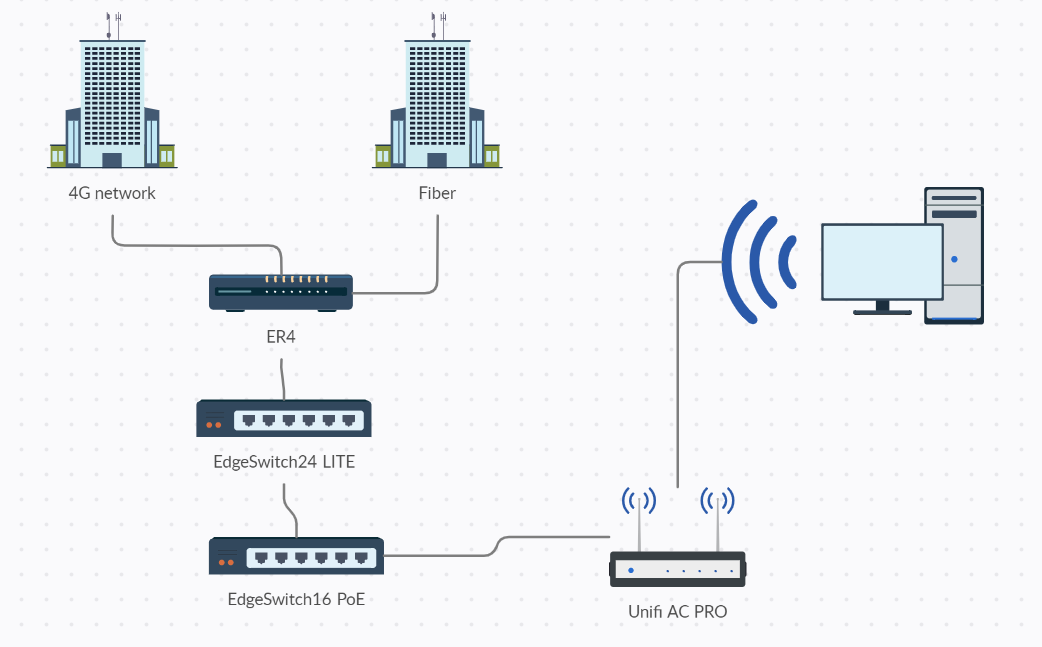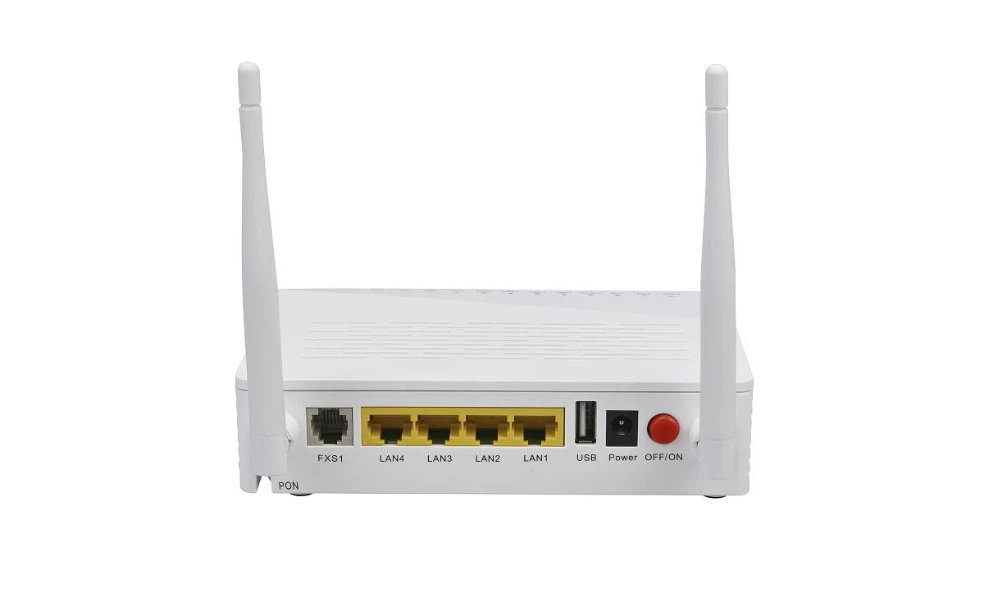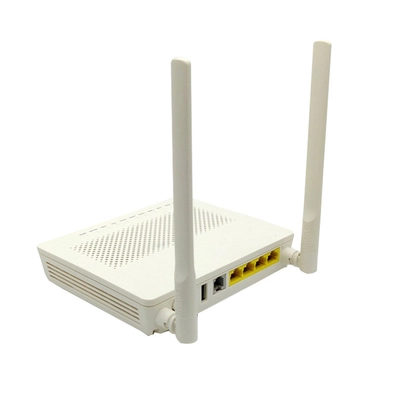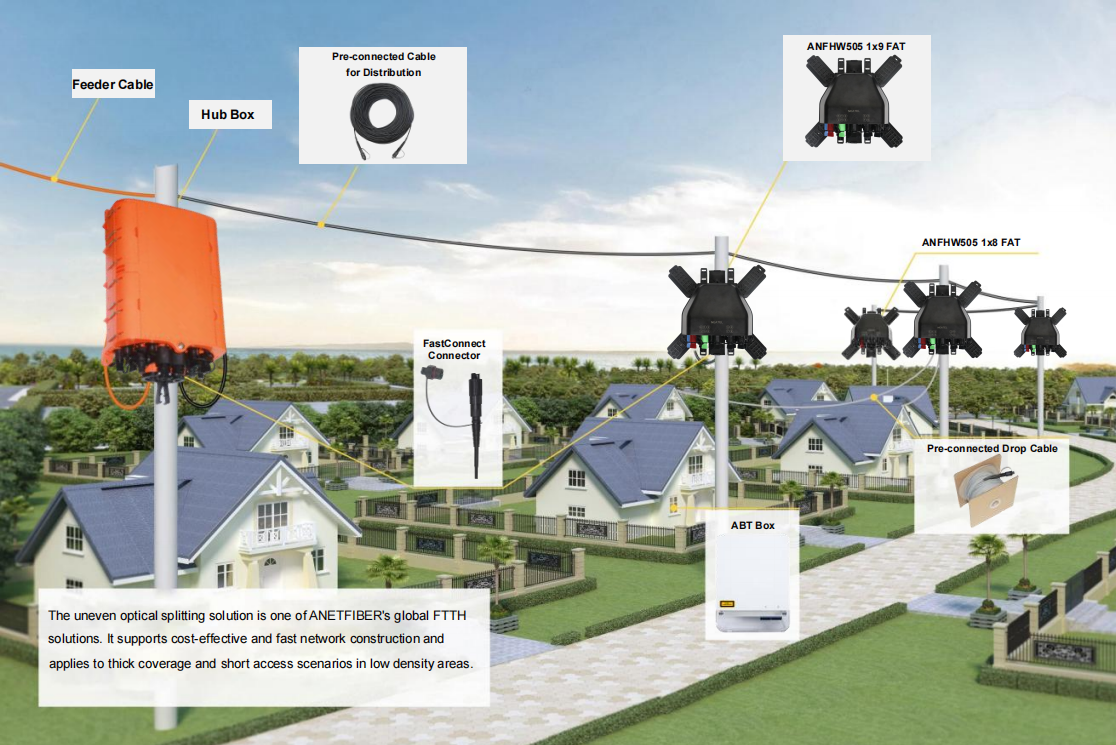Understanding ONU Configuration: Simplifying WiFi Network Setup

Mastering ONU Configuration
ONU configuration plays a pivotal role in establishing a robust and efficient WiFi network. As an integral part of fiber optic networks, the ONU, or Optical Network Unit, requires precise configuration to ensure seamless connectivity. By mastering the key steps in ONU configuration, users can optimize their network performance and troubleshoot common issues effectively. Understanding these aspects is essential for simplifying the setup of WiFi networks and ensuring a secure and reliable connection for all connected devices.
Essential ONU Configuration
Understanding ONU Configuration
The role of the Optical Network Unit (ONU) in fiber optic networks is to bridge the gap between the optical network and the user's devices. It serves as the interface that converts optical signals from the network into electrical signals for devices to utilize. The key steps in ONU configuration involve setting up parameters such as the service profile, VLAN configuration, and Quality of Service (QoS) settings. Additionally, configuring security features like MAC address filtering and port-based access control is crucial to ensure unauthorized devices cannot access the network through the ONU.
Optimizing ONU Performance
To optimize ONU performance, ensuring compatibility with various network devices is essential. This involves configuring the ONU to support different Ethernet standards and ensuring seamless interoperability with routers, switches, and other networking equipment. Troubleshooting common ONU configuration issues such as signal loss, mismatched configurations, or firmware glitches is also vital for maintaining a stable and efficient fiber optic network connection.

Simplifying WiFi Network Setup
Streamlining WiFi Installation
When it comes to streamlining WiFi installation, choosing the right WiFi router is paramount. Look for a router that aligns with your internet connection speed and provides adequate coverage for your space. Additionally, setting up WiFi network passwords is crucial for securing your wireless network. Be sure to use strong, unique passwords and consider enabling WPA2 or WPA3 security protocols for an added layer of protection.
Enhancing WiFi Signal Strength
Enhancing WiFi signal strength can significantly improve your wireless network's performance. Positioning WiFi access points strategically throughout your space can help ensure consistent coverage and minimize dead zones. Furthermore, using WiFi extenders can extend the range of your wireless network, providing wider coverage in areas where the signal may be weaker.
By implementing these strategies, you can simplify the setup of your Wi-Fi network and enhance its overall performance.
Best Practices for Network Security
Best Practices for Network Security
In today's interconnected world, ensuring the security of your network is paramount. By implementing best practices for network security, you can protect your computer network from potential threats and vulnerabilities.
Securing WiFi Networks
When it comes to securing WiFi networks, it's crucial to implement robust security protocols such as WPA2/WPA3. These protocols encrypt data transmitted over the wireless network, safeguarding it from unauthorized access. Additionally, regularly updating the firmware of your WiFi network devices is essential. Firmware updates often include security patches that address known vulnerabilities, enhancing the overall security posture of your wireless network.
Preventing Cyber Threats
Preventing cyber threats involves proactive measures to mitigate risks. Installing firewall protection acts as a barrier between your internal network and external threats, filtering incoming and outgoing traffic based on predetermined security rules. Furthermore, educating users on phishing and malware risks empowers them to recognize and avoid potential threats, reducing the likelihood of security breaches.
By adhering to these best practices for network security, you can fortify your data network against cyber threats and ensure a secure digital environment for all connected devices.

Advantages of Efficient ONU Configuration
Efficient ONU configuration offers several advantages that contribute to the overall performance and management of a fiber optic network.
Improved Network Performance
Faster data transmission rates: A well-configured ONU facilitates swift data transmission, ensuring that information travels seamlessly between devices connected to the network. This results in efficient communication and improved user experience.
Reduced network latency: With an optimized ONU configuration, network latency is minimized, leading to quicker response times for online activities such as streaming, gaming, and video conferencing.
Cost-Effective Network Management
Lower maintenance and operational costs: An efficiently configured ONU reduces the need for frequent maintenance and troubleshooting, resulting in cost savings for network management. By minimizing the occurrence of issues, businesses can allocate resources more effectively.
Minimized network downtime: With an efficient ONU configuration, the likelihood of network downtime due to technical issues is significantly reduced. This ensures continuous connectivity for users and minimizes disruptions in operations.
By harnessing these benefits of efficient ONU configuration, organizations can enhance their network capabilities while optimizing resource utilization and minimizing operational costs.
Mastering ONU Configuration
Effective ONU configuration is the cornerstone of a robust and reliable WiFi network. By mastering the setup of the optical network unit (ONU), users can ensure seamless connectivity and optimized performance for their fiber optic network. Understanding the intricacies of ONU configuration, including network parameters and security settings, is crucial for establishing a secure and efficient wireless connection. Moreover, implementing best practices for ONU configuration contributes to enhanced network capabilities and streamlined management, ultimately benefiting both residential and business users.
See Also
2024: Cost-Effectiveness of Singlemode vs Multimode Fiber Optic Cables
Understanding ADSS Cable and Fiber Optic Strength Member Solutions
Comparing the Advantages of FRP and Steel for ADSS Cable: A Comprehensive Guide
Exploring LC Series Fiber Optic Breakout Cables and Duplex Multi-Mode Fiber Solutions
LC Series Fiber Adapter Panels: OS2 Single Mode vs. OM4 Multimode Solutions
About US
Follow Us
AnetFiber company's main products are indoor and outdoor optical fiber cables, outdoor waterproof pre-connected fiber-to-the-home products, PLC optical fiber splitters, optical fiber jumpers and pigtails, MTP®/MPO high-density big data product solutions, optical fiber field quick connectors and research and development molding, injection molding and production of optical fiber distribution boxes, optical fiber chassis cabinets, the market has expanded to the world, Europe, America, Asia, the Middle East and Latin America.
Address
Shenzhen City, Baoan District, Yanluo Street, Tangxiayong Community, Yangyong Industrial Road, Tonggangda New Energy Vehicle Park 406
Contacts
+86 199 2655 3586

